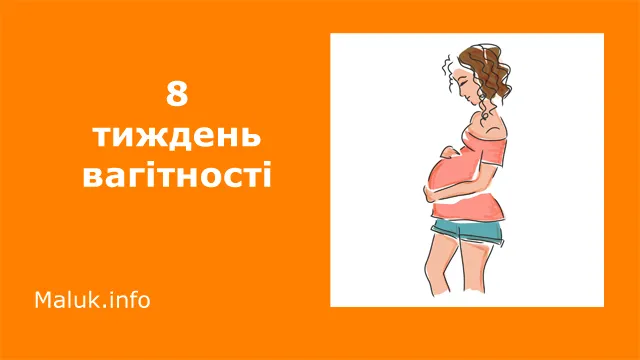Pregnancy calendar: 8th week of pregnancy
Pregnancy calendar by week. An experienced doctor tells how a child develops in the womb and what changes occur in the pregnant woman’s body. All the most important things about the 8th week of pregnancy
Changes in your body:
Perhaps your weight has increased to 1-2 kg . Weight gain is normal because your body has readjusted to a larger volume of circulating blood: an increase and thickening of the blood vessels that supply blood to the uterus, where the baby is developing. However, the idea that you have to eat for two – in the literal sense – eat two portions, is not correct. A baby does not need a lot of calories to grow and develop, especially in the first trimester. At the beginning, this is only an additional 300 – 400 kcal during the day. But what you really need are vitamins and trace elements! Therefore, there are fewer empty calories, for example, with potatoes or pasta, and more greens, nuts, vegetables and fruits.
Perhaps your weight, on the contrary, has become less due to poor appetite, nausea or vomiting. In a small way, this is not a problem. However, if you suffer from vomiting, then pay attention to the signs of dehydration (dangerous loss of fluid and mineral substances (salts)).
Signs of dehydration:
- Vomiting doesn’t stop, you can’t keep food or liquid down for 24 hours.
- The amount of urine decreases, it becomes darker in color, more concentrated.
- Dryness of the skin and mucous membranes, for example, dry mouth, dry eyes.
- Feeling tired, weak, in difficult situations you can even faint.
Help with dehydration:
- Find a position, for example, half-sitting, so that you can stop vomiting and drink at least salted water.
- Try still mineral water at room temperature, some people find lemon or a piece of ginger helpful.
- If you can already take food, try vegetable broth or chicken broth.
- In the pharmacy, you can buy special solutions of electrolytes (salts) for rehydration (restoration of fluid and mineral substances in the body) . If the body does not accept even such saline solutions, then it is worth seeking help at a hospital, where permanent administration of saline solutions is possible.
Your breasts also begin to change under the influence of hormones. The future ducts of the mammary glands (breasts) are developing , where milk will be produced for your baby . Therefore, the breasts also grow. You may need to buy a special bra that will reliably and gently support sensitive mammary glands.
How does the baby grow?
You don’t feel it yet, but your baby is actively moving. The baby allegedly swims in its own pool (in amniotic fluid). The body is elongated, now it is 13 mm long, within a week it will grow to 18 mm, it will become in size and visually somewhat similar to a bean.
A large head with eyes that are already almost completely covered by eyelashes, ears that stand out on the side, and a small tip of the nose with nostrils. Since the baby’s skin is translucent, you can see the blood supply to the brain, heart and other organs of the baby.
The child’s arms and legs have turned from oars into something more like human limbs. On the upper limb (hand), the elbow joint and developing fingers, although they still have membranes, can be clearly distinguished. Similarly, on the lower limb (leg) we see the knee joint, distinguish the foot and the toes.
Author: Olga Letnyanchyk, doctor
Read also:
– Pregnancy calendar: from 1 to 40 weeks

